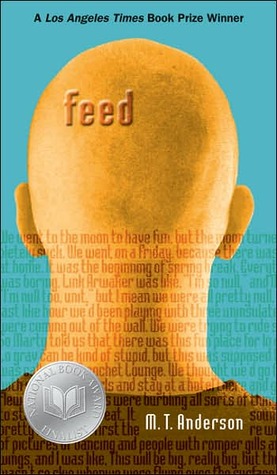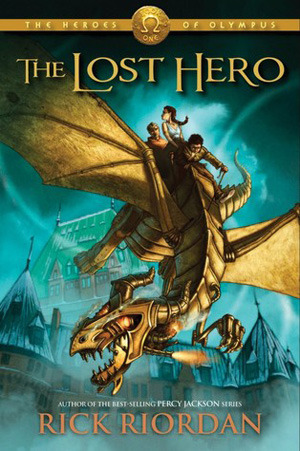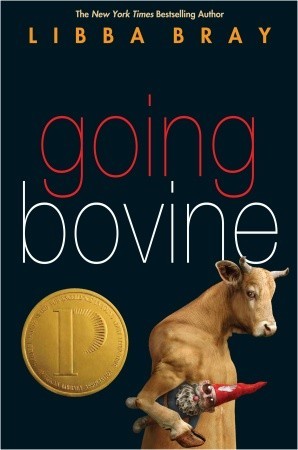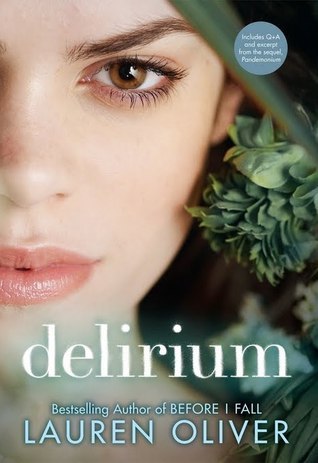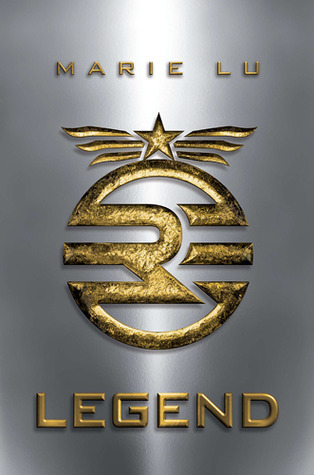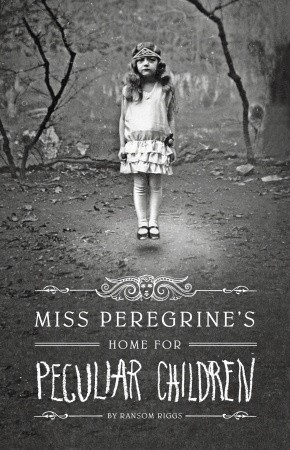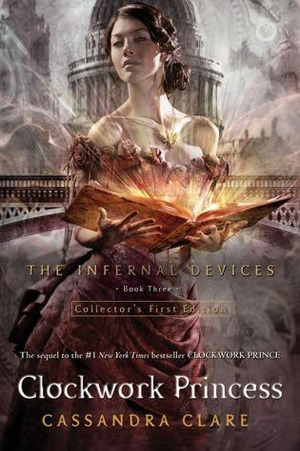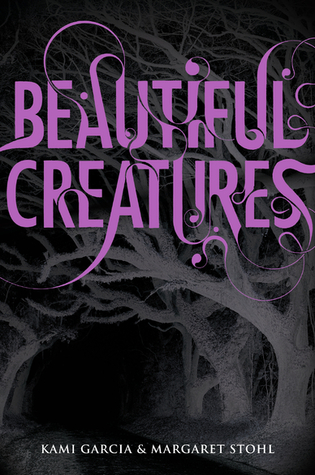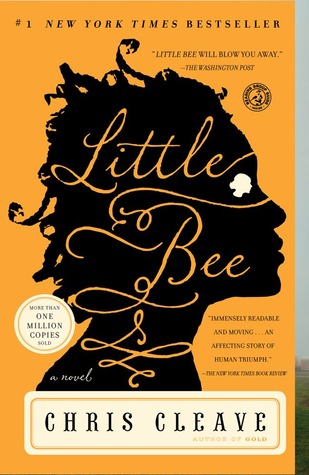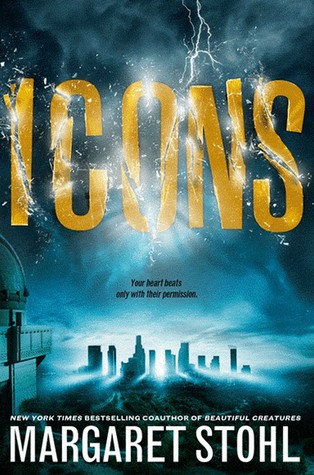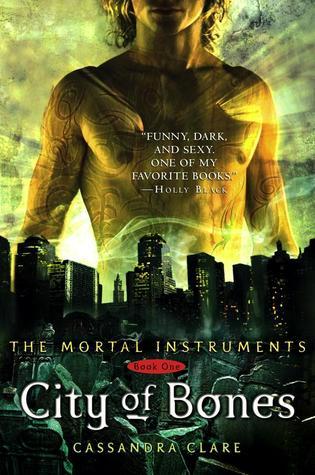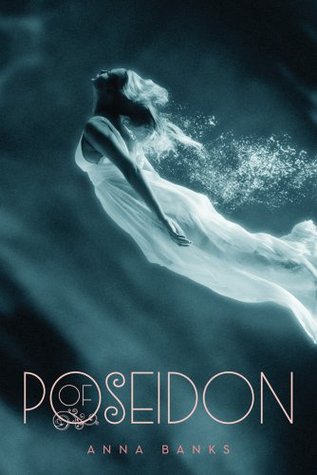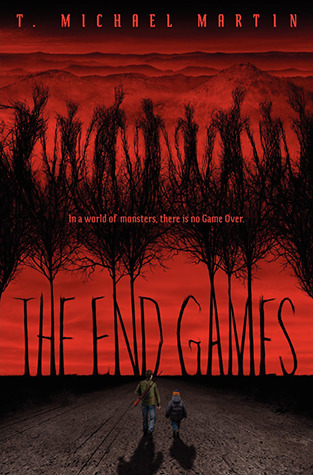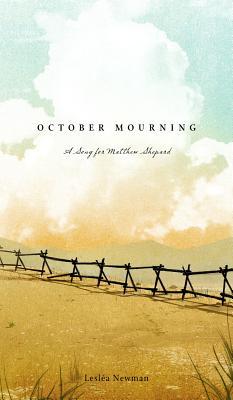 Title: October Mourning: A Song for Matthew Shepard
Title: October Mourning: A Song for Matthew Shepard
Publisher: Candlewick Press
Release Date: September 25, 2012
Pages: 128
Rating: 3 out of 5 stars
Summary from Goodreads: A masterful poetic exploration of the impact of Matthew Shepard’s murder on the world.
On the night of October 6, 1998, a gay twenty-one-year-old college student named Matthew Shepard was lured from a Wyoming bar by two young men, savagely beaten, tied to a remote fence, and left to die. Gay Awareness Week was beginning at the University of Wyoming, and the keynote speaker was Lesléa Newman, discussing her book Heather Has Two Mommies. Shaken, the author addressed the large audience that gathered, but she remained haunted by Matthew’s murder. October Mourning, a novel in verse, is her deeply felt response to the events of that tragic day. Using her poetic imagination, the author creates fictitious monologues from various points of view, including the fence Matthew was tied to, the stars that watched over him, the deer that kept him company, and Matthew himself. More than a decade later, this stunning cycle of sixty-eight poems serves as an illumination for readers too young to remember, and as a powerful, enduring tribute to Matthew Shepard’s life.
First Thoughts: A powerful verse novel that tells the story of injustice in our country. I enjoyed the emotions the poems evoked in me; however there were some components I wish were done differently - I think the impact could have been stronger.
I picked this novel up as part of the YALit1o1 class this summer; I had no idea what to think. I honestly didn’t even know it was a story about the atrocity of Matthew Shepard’s death (I didn’t see the subtitle until I checked the book out of the library). Although I don’t read a lot of verse novels, I am a HUGE fan of Patricia McCormick’s Sold and anything by Ellen Hopkins, so I figured I would enjoy this as well. After flying through October Mourning (it reads VERY quickly) I felt a lot of emotion, but I felt like there was more there to say still.
In the novel, each poem is told from a different point of view; most of the narrators are inanimate objects - the fence, the vigil candles, the pistol, etc... I thought that was an interesting twist. I assumed that the poems would be told from Matthew’s point of view; however, very few of them are. These points of views were a highlight and disappointment for me. I liked the abstract nature of the fence’s poems, but I really did want more from Matthew’s perspective - talk about a powerful story to tell. To me, more of any human perspective would have been better. There were times where I felt the inanimate perspective almost dragged on; I needed more to connect to.
This isn’t necessarily a knock on the book, because even without a lot of the human story, it is still EXTREMELY powerful. To think about what those two boys did to Matthew, to think about his parents getting that phone call, to think about all of the other homosexual teens and young adults afraid to express themselves - this novel truly reveals the discrimination and injustice that still exists in our society. That in itself makes it an important novel for teens to read. Maybe it will make them think twice before they call something “gay” when they really mean “stupid”. We all need to think about the words we choose, and Newman’s poems might just be the wake-up call some kids need.
From the teacher-side of me, the poetry is beautiful. Newman writes many different types of poems playing with repetition, rhyme, word choice, visual organization, etc... She also explains all of the poems at the end, which makes it a great mentor text and teaching tool. I will end with what I felt was the most powerful poem of the whole book (I get shivers reading it):
THE FENCE
(that night)
I held him all night long
He was heavy as a broken heart
Tears fell from his unblinking eyes
He was dead weight yet he kept breathing
He was heavy as a broken heart
His own heart wouldn’t stop breathing
He was dead weight yet he kept breathing
His face streaked with moonlight and blood
His own heart wouldn’t stop beating
The cold wind wouldn’t stop blowing
HIs face streaked with moonlight and blood
I tightened my grip and held on
The cold wind wouldn’t stop blowing
We were out on the prairie alone
I tightened my grip and held on
I saw what was done to this child
We were out on the prairie alone
Their truck was the last thing he saw
I saw what was done to this child
I cradled him just like a mother
Their truck was the last thing he saw
Tears fell from his unblinking eyes
I cradled him just like a mother
I held him all night long
Final Thoughts: An important book due to its emotional impact - the anger, the sadness, the deep,deep hurt that this moment in history caused. Overall, I think the emotional power of this book and the message it delivers hides some of the unevenness in the poetry, making it an influential book for teenagers today.
Who Should Read It? Honestly, I’m not really sure who the target audience is here - I think it’s an important book for every teenager to read. I think all of us, in this generation, need to take a moment to step back and look at the injustices that still occur in our world. Instead of projecting more hate, we need to start taking steps for change. I think this book can help inspire readers to take those first steps.
